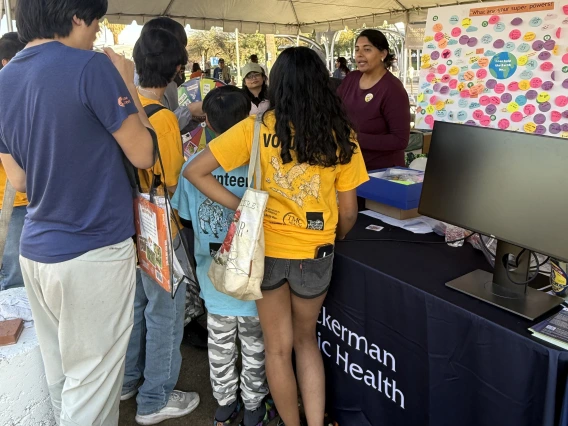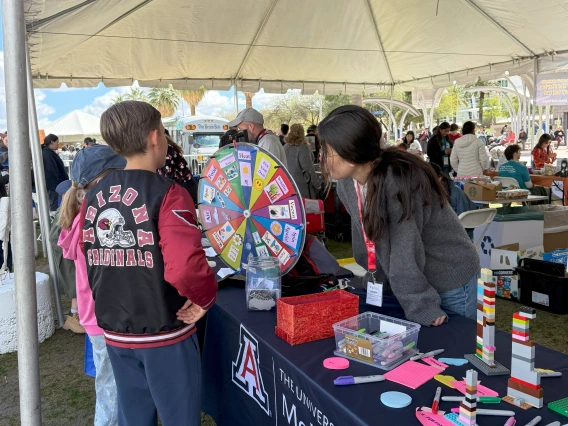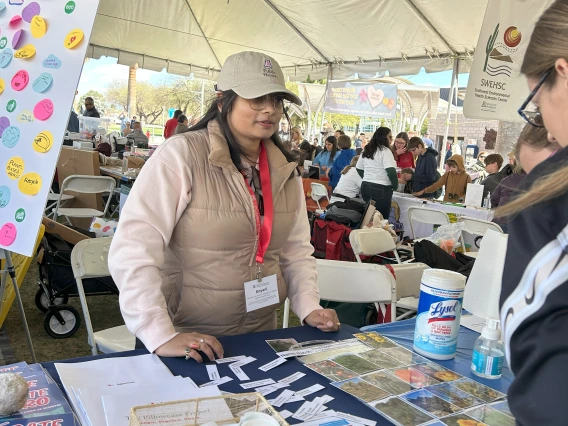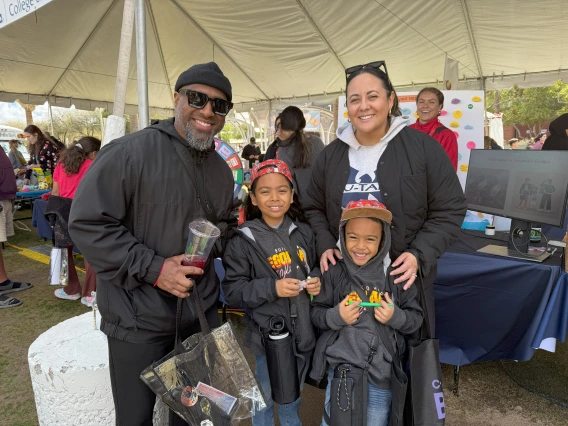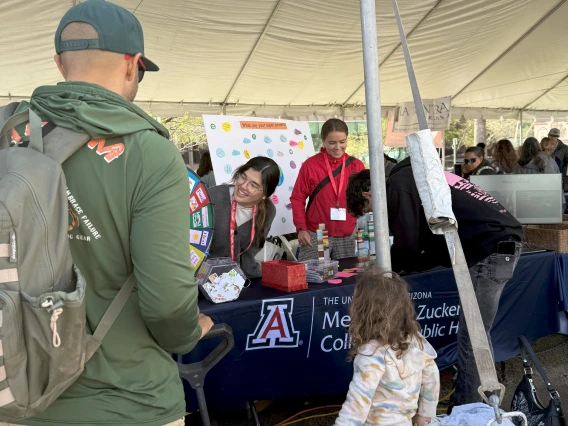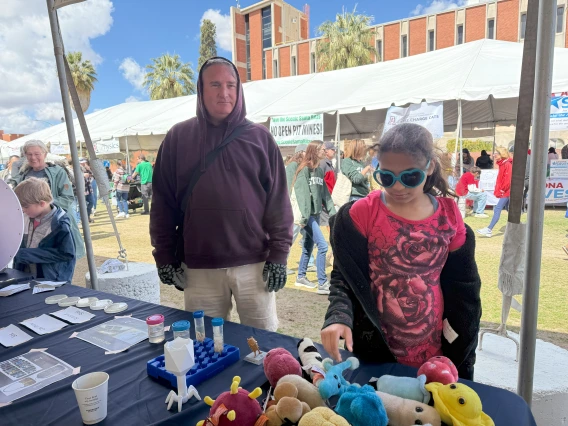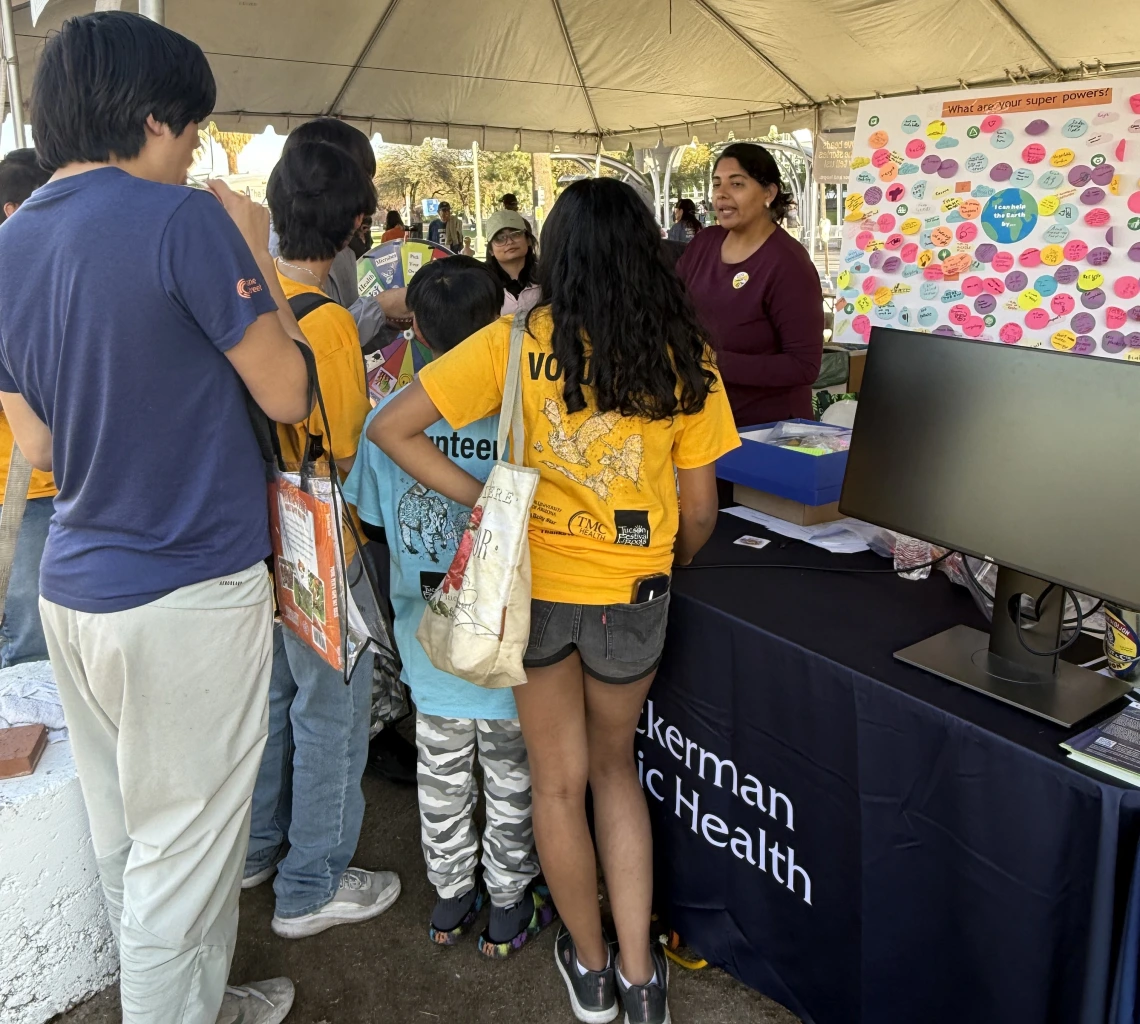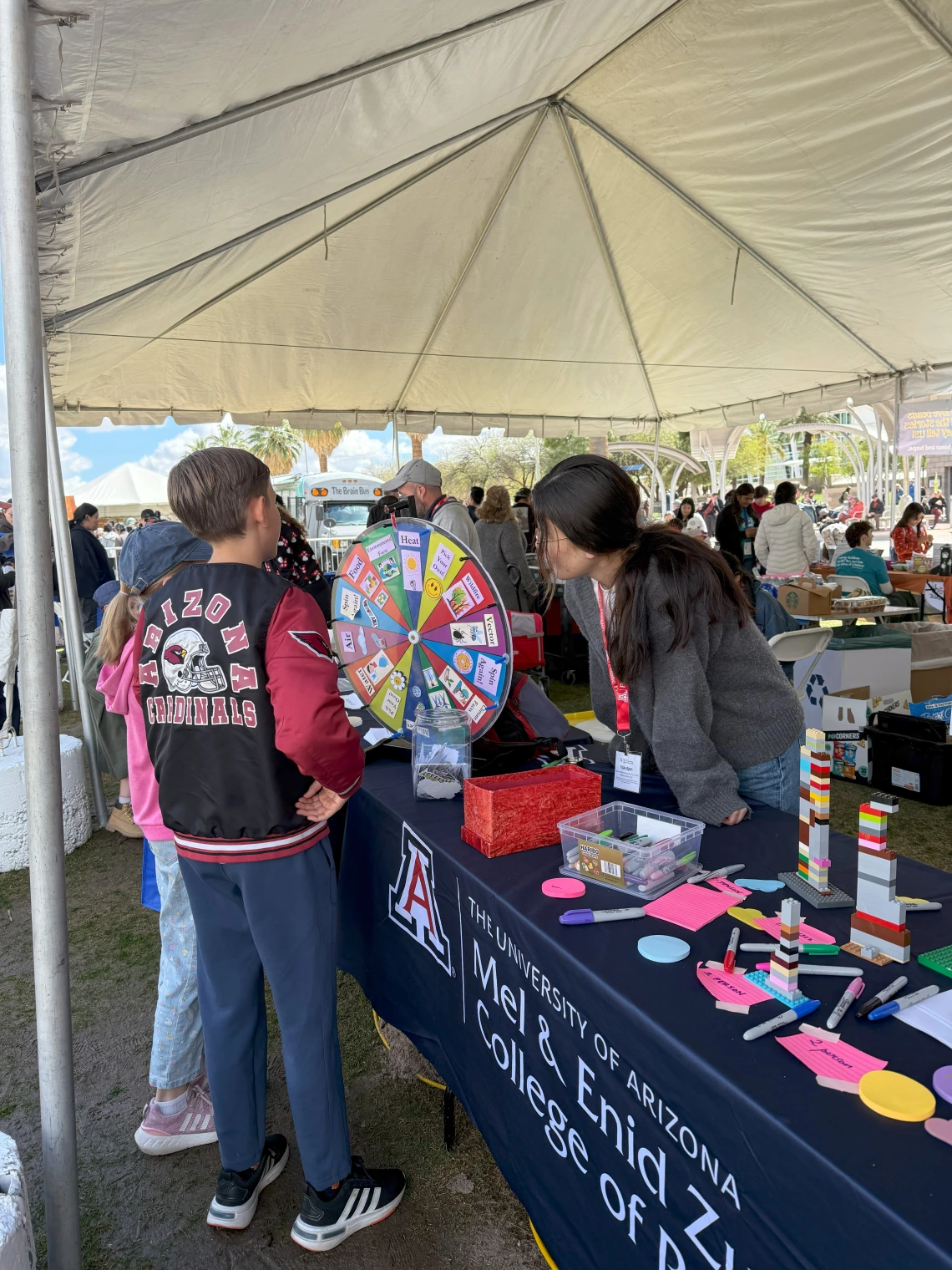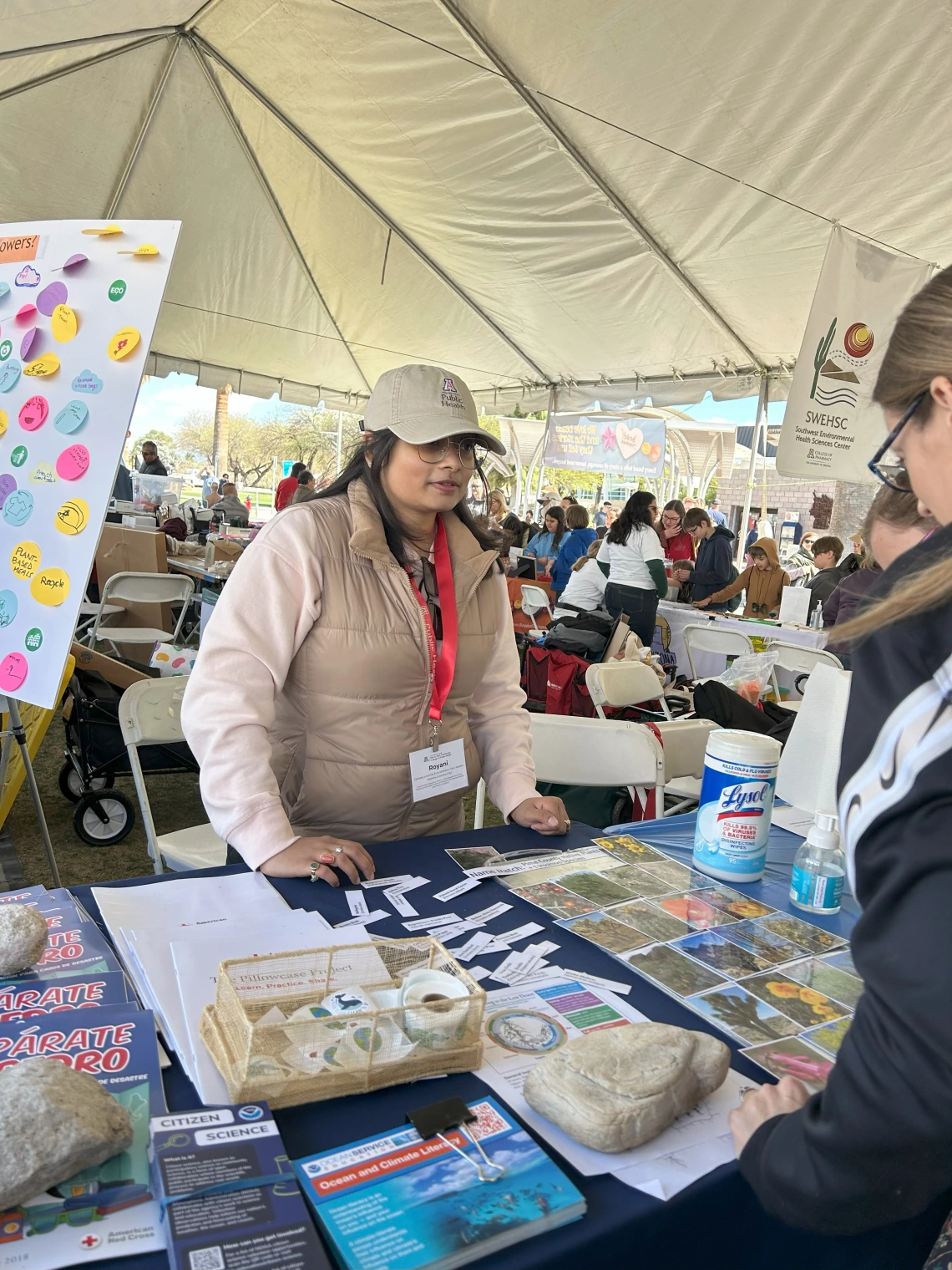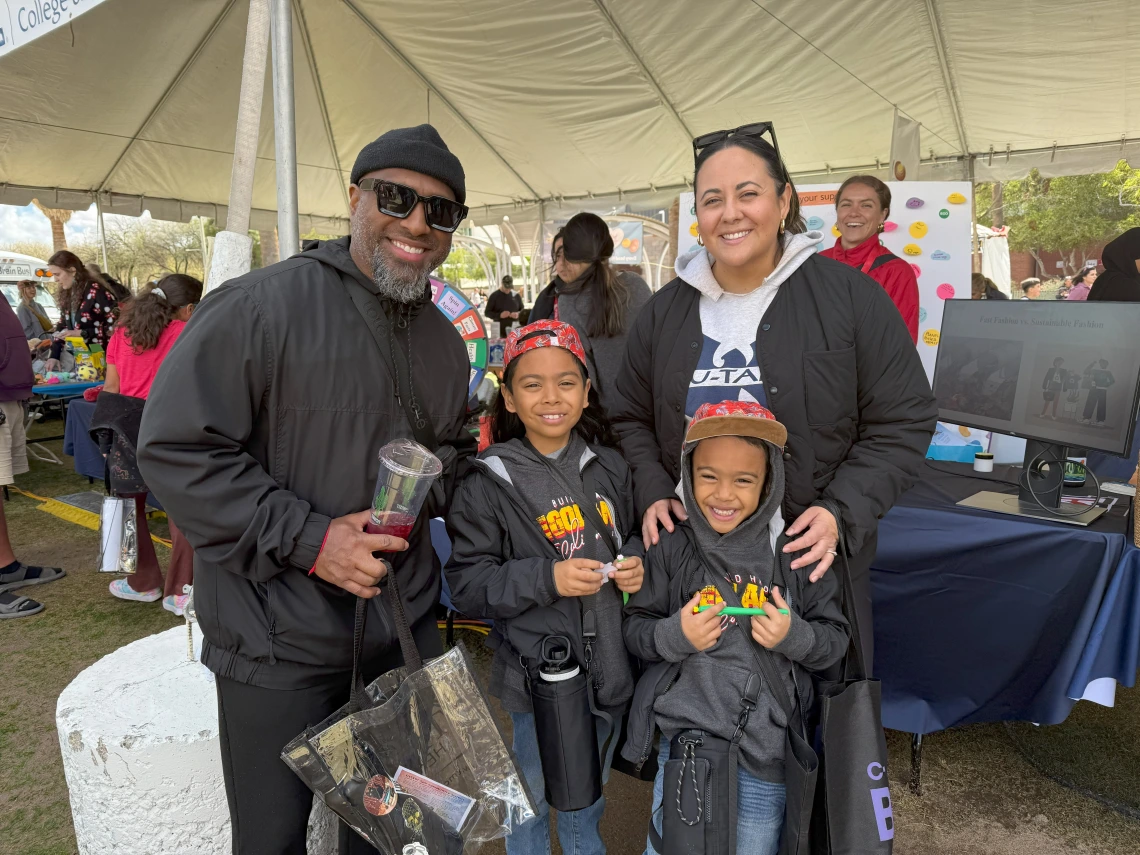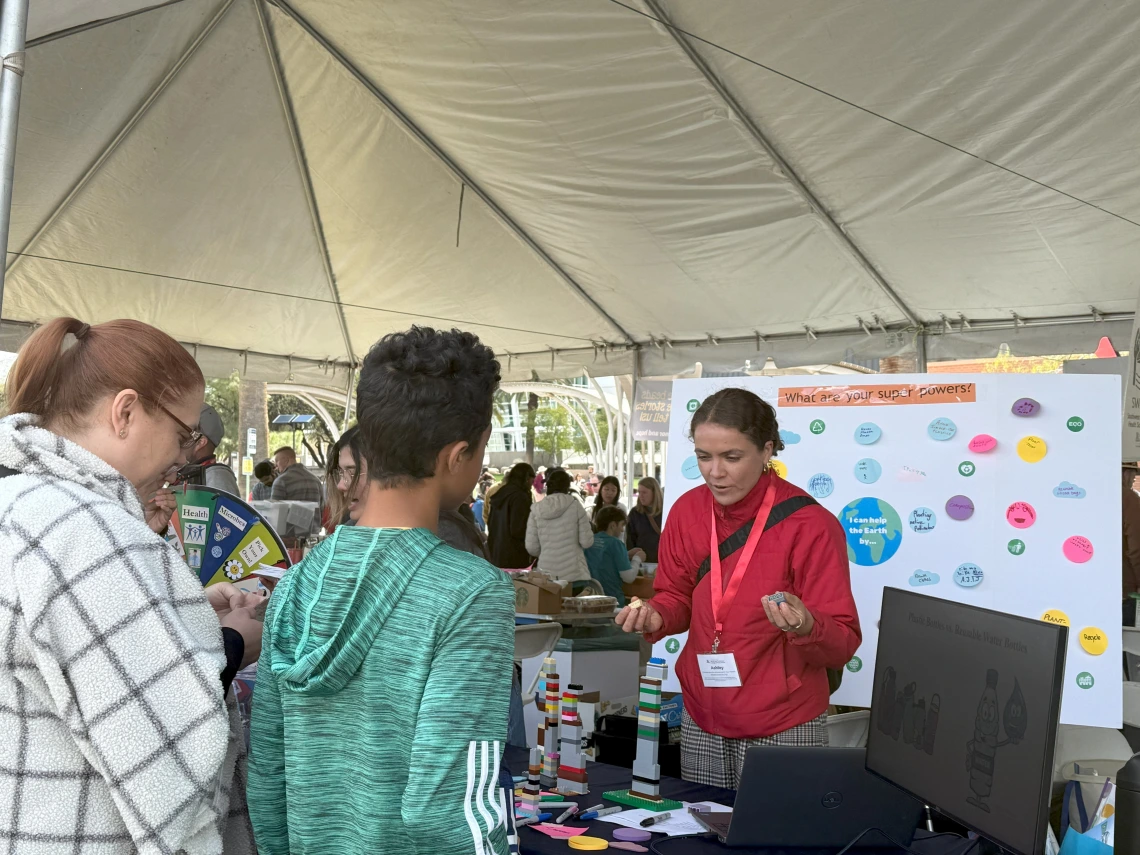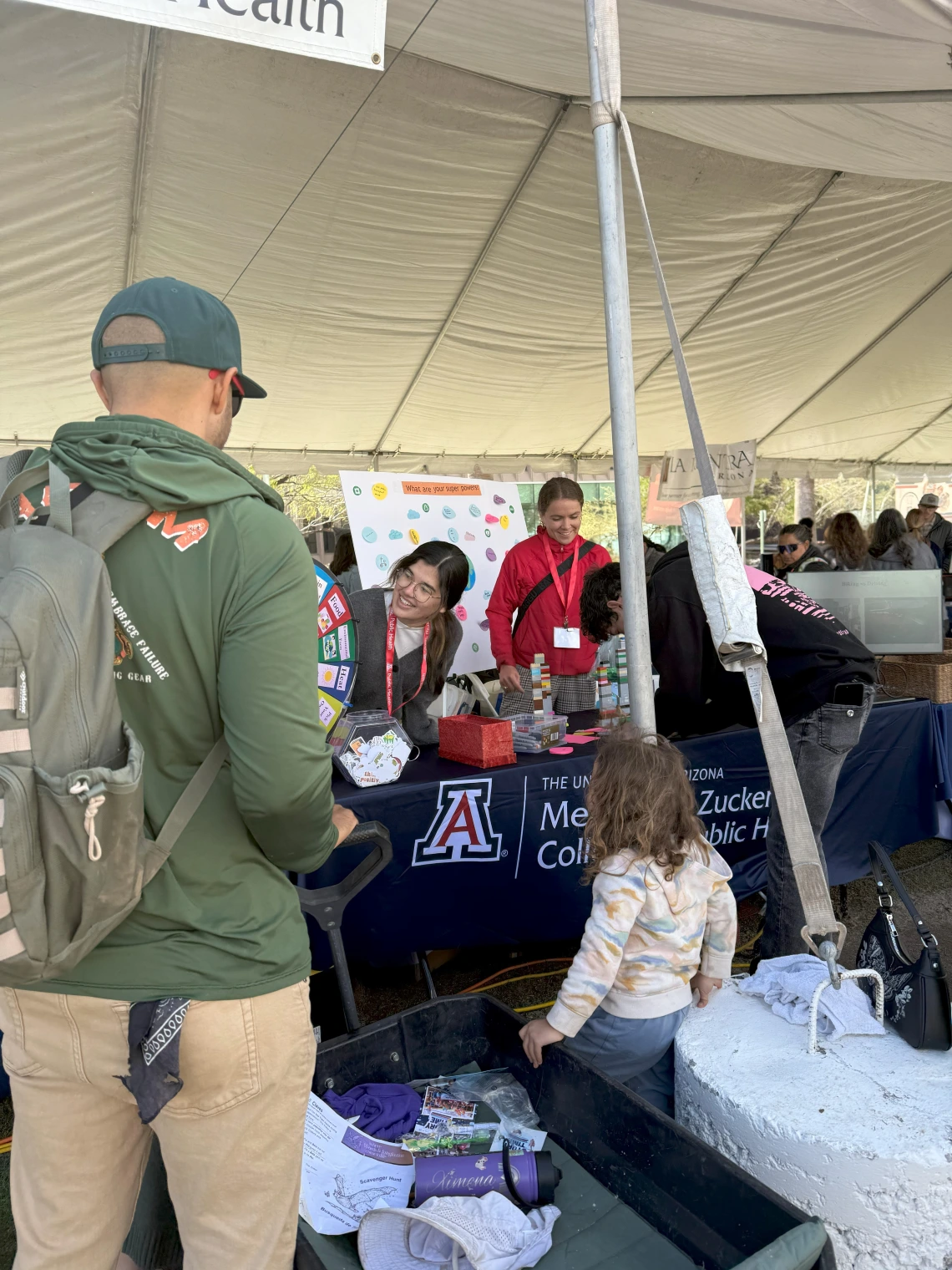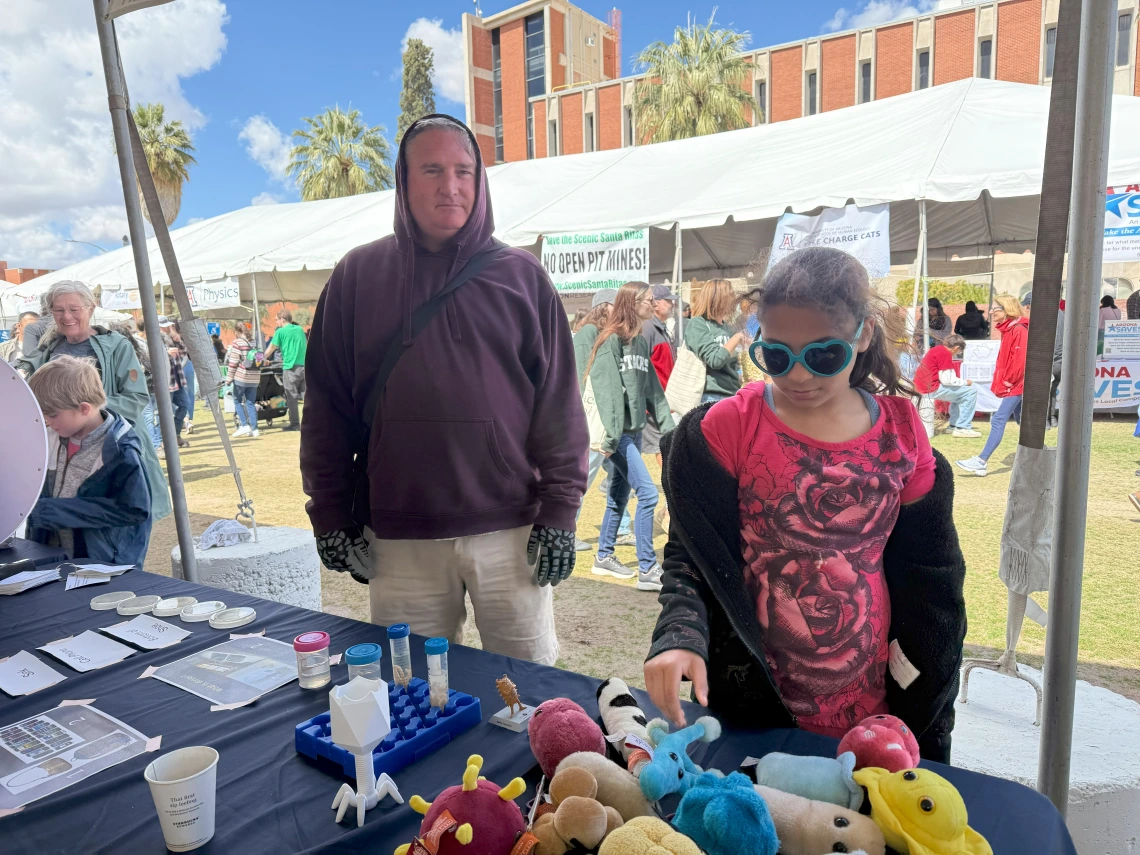U of A College of Public Health at Science City, Tucson Festival of Books
ESRAC & SCORCH Host "Climate and the Environment: Your Health Matters" Booth
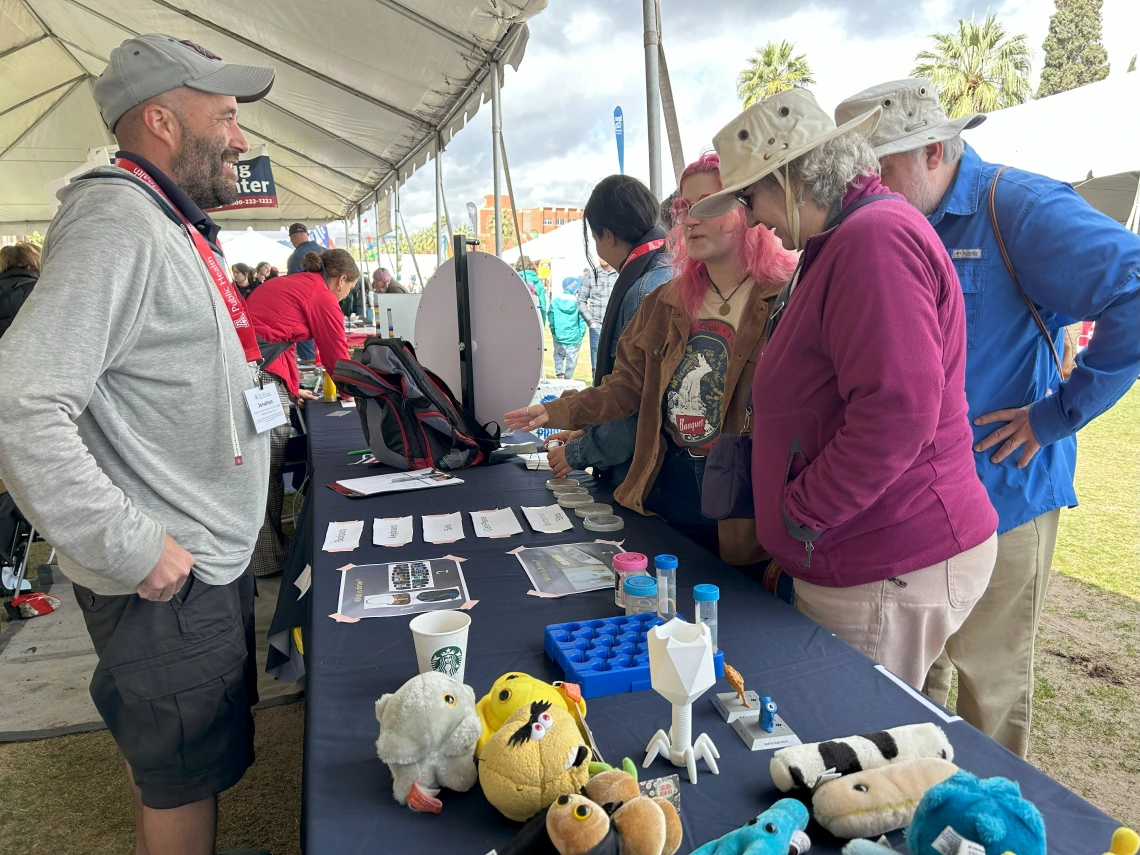
Dr. Jonathan Sexton and participants exploring ESRAC's germ table.
Royani Saha
The 16th Annual Tucson Festival of Books (TFOB) brought together authors, presenters, volunteers, and visitors to celebrate literature and education at one of the largest book festivals in the United States. The interactive tables, titled "Climate and the Environment: Your Health Matters," jointly hosted by Environment, Exposure Science and Risk Assessment Center (ESRAC) and Southwest Center on Resilience for Climate Change and Health (SCORCH), were a success at the Science City "Science of You" neighborhood. Approximately 2,200 participants of all ages visited the ESRAC and SCORCH tables, engaging in fun and educational activities focused on environmental germs, climate and health topics, reflections on strategies for reducing individual carbon footprints, and native and invasive plant species. Popular activities included identifying germy surfaces using petri dishes, exploring microbes with toys, guessing games about germs, and spinning the trivia wheel for prizes. With the enthusiastic support of 16 volunteers, the tables attracted an impressive average of 2.3 visitors per minute, or about 137.5 participants every hour.
The interactive ESRAC and SCORCH tables at the Tucson Festival of Books captivated participants of all ages with engaging activities designed to highlight germs in the environment, climate awareness, and individual health impacts. Participants explored ESRAC's "Germs in the Environment" station, where they examined five different petri dishes and were surprised to discover which surfaces had the highest germ counts. They further explored microbes hands-on by interacting with toys designed to visually represent different germs. The excitement continued with the "Guessing Game," challenging visitors to determine which common items were germier—such as sinks versus toilets or cell phones versus purses and backpacks—leading to many astonished reactions. This activity cleverly integrated germ education by asking participants to also guess which items had more germs, connecting everyday decisions with microbial risk.
At the SCORCH tables, visitors eagerly spun the trivia wheel to answer thought-provoking questions that blended topics of germs, climate, and health—including water, air, food, environmental facts, heat, wildfires, and disease vectors. With three levels of difficulty across eight dynamic subtopics, the trivia challenged and educated participants of all ages. Those who answered correctly received a prize, adding to the excitement. Attendees also contributed to a whiteboard, sharing their personal environmental “superpower”—unique actions they take to help protect and sustain the planet. One of the most popular activities invited participants to build their carbon footprint using LEGO blocks, creating colorful visual representations of their environmental impact, and proudly snapping photos of their designs.
Another crowd favorite was the Native Plants Name Matching Game where participants matched beautifully illustrated plant images with their corresponding names. After each match, they flipped the cards to reveal fascinating facts about these important native species. As a bonus, those who correctly identified plants were rewarded with seeds, generously donated by Native Seed Search, such as sunflowers, okra, or cherry tomatoes to take home, planting a little piece of sustainability for the future.
Overall, ESRAC and SCORCH activities provided memorable, hands-on learning experiences that sparked curiosity and encouraged thoughtful reflection on germs, personal health, climate responsibility, and sustainability. Each activity fostered meaningful connections and empowered attendees with the knowledge to promote healthier communities and a sustainable future.
Special thanks to MEZOPH and other U of A students who contributed their time, creativity, and passion for educational outreach to the community on environment, climate, and health topics: Ashley Danforth, Harini Arumugam Gandhimathi, Nurkhonoy Khayitova, Charity Moparthy, Imran Mithu, Lance Picton, Tomas Pramod, Royani Saha, Yokutjon Tohirova, and Lexi Vance.


